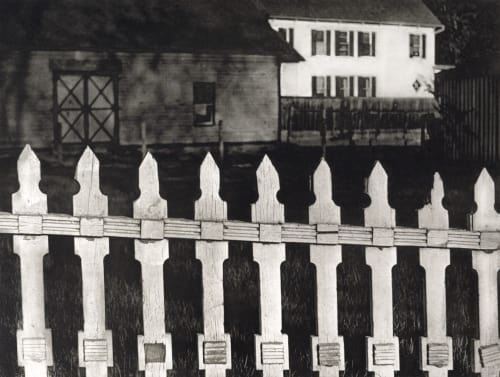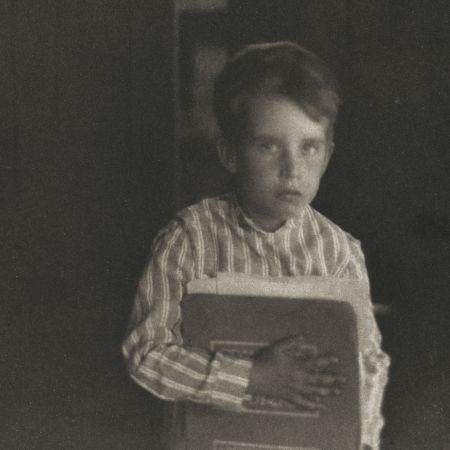
Title
The White FenceArtist
Strand, Paul (American, 1890-1976)Key FigurePublication
Aperture PublicationsDate
1980 plate (1916 negative)Process
PhotogravureAtelier
Jon Goodman Photogravure, MassachusettsImage Size
13 x 9.6 in
The White Fence . . . a picture, I think, that has etched itself into the pictorial memory of every young photographer who ever saw it, except perhaps for the most insensitive. —John Szarkowski
The White Fence, Port K=ent, 1916, is one of Paul Strand¹s best-known images. It followed his New York City photographs, and Strand himself declared it his next step in abstraction and "the basis for all the work" that followed. At the time, taking a simple weathered white picket fence, an ordinary object, and making it the subject of a photograph was not only a move away from the Pictorialist movement, but a groundbreaking one. Its subject matter, combined with its composition, makes it a pivotal image in the history of photography. Why did I photograph that white fence up in Port Kent, New York, in 1916? Because the fence itself was fascinating to me. It was very much alive, very American, very much a part of the country . . . "
This hand-pulled dust grain photogravure is from edition of 350 and 50 artist’s proofs printed by Jon Goodman for Aperture.
Reproduced / Exhibited
Rocha, Regina M, Paul Strand, and Helouise Costa. A Poética Fotográfica De Paul Strand. São Paulo, Brazil: Editora da Universidade de São Paulo, 2012. Fig. 25
Malcolm R. Daniel, and Florian Rodari. Graver La Lumière: L’héliogravure D’alfred Stieglitz À Nos Jours Ou La Reconquête D’un Instrument Perdu. Vevey, Suisse: Fondation William Cuendet & Atelier de Saint-Prex, 2002. p. 33


